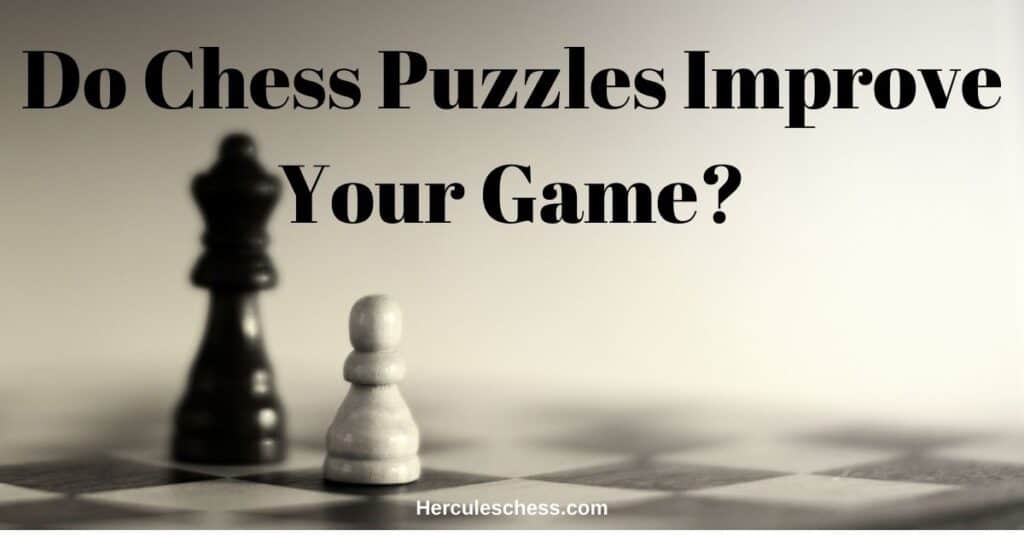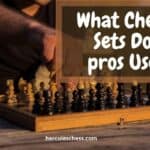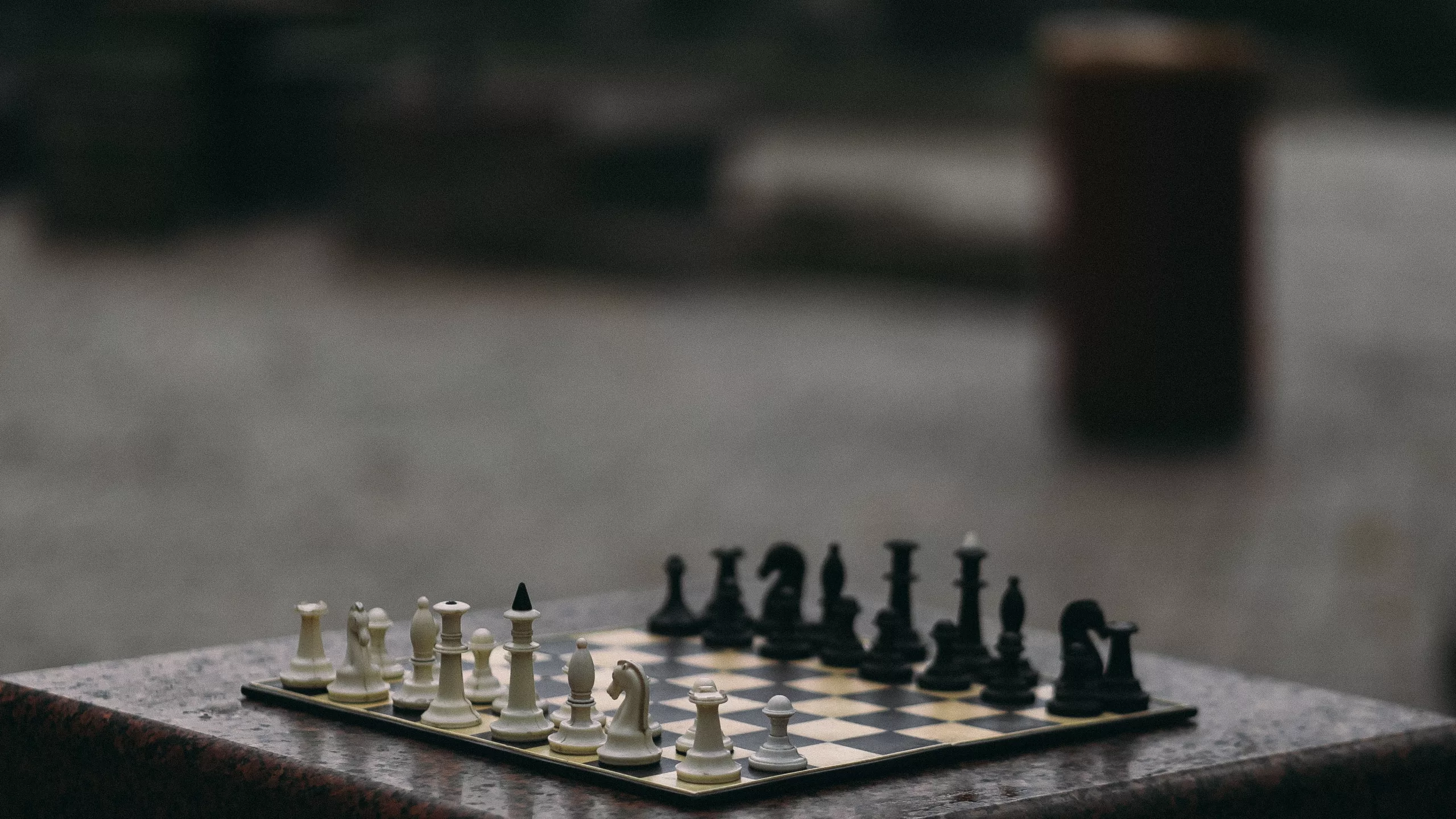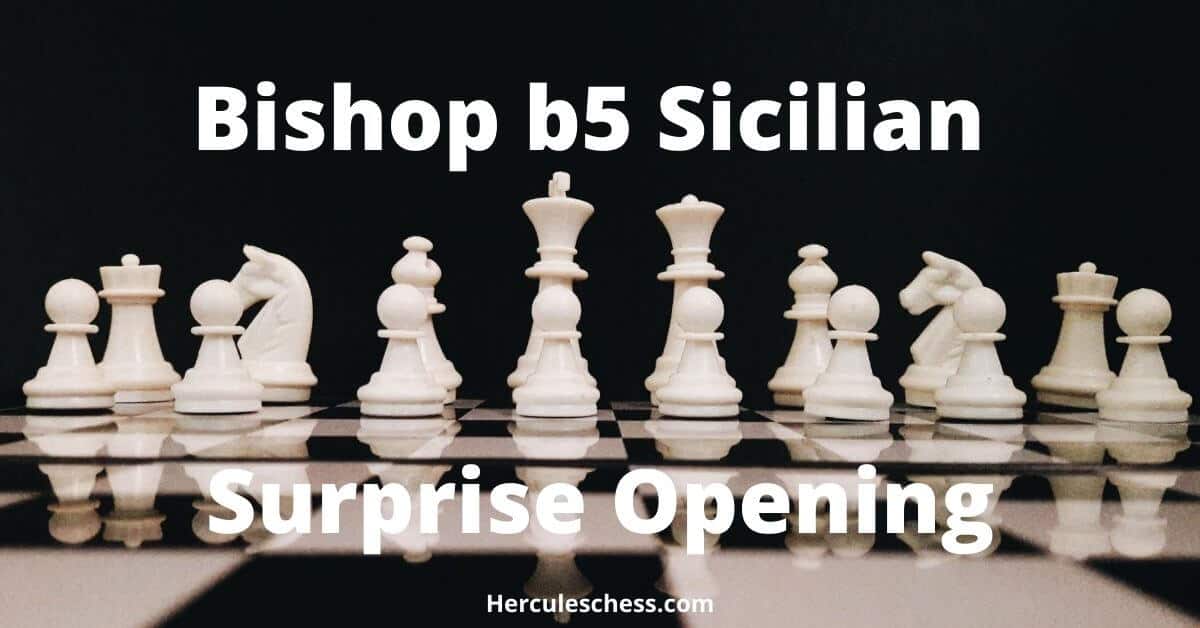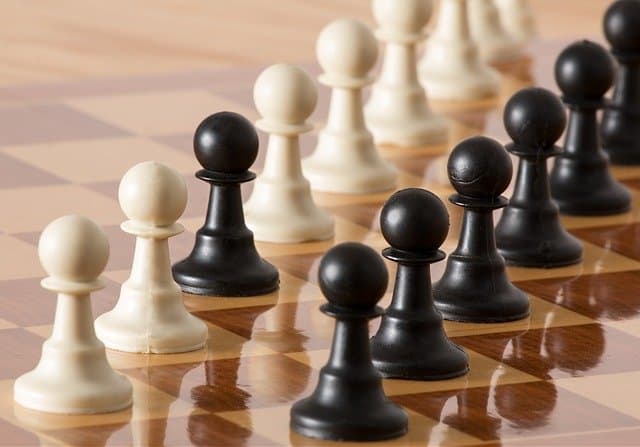Solving chess puzzles is a great way to train your mind in preparation for a big tournament. It develops your sharpness and mental agility needed to solve complex positions. Every grandmaster incorporates solving puzzles into their training system and so should you. But do solving chess puzzles actually improve your game?
Solving chess puzzles daily can significantly improve you calculation skills and visualization over the board. However, do not depend entirely on solving chess puzzles as a means of improving your game. You could solve as many puzzles but fail to make any progress if you lack the basic positional understanding of chess.
You see, most chess games usually start out quiet and this is where your knowledge of positional chess sets in. If you are all about tactics tactics tactics, then you won’t know what to do when you have a quiet position. Before you know it, you will be outplayed by your opponent due yo your lack of positional understanding.
Most chess puzzles are often complicated with lots of tension, so you know you should always begin your calculation process. However, in a real match, you will have to know for yourself when to start calculating and this is where the problem comes in. Players who only solve chess puzzles will never know when to start and stop calculating because that’s all they know. As a rule of thumb, you should begin your calculation process when there is tension over the board, (for example pieces coming in contact with other pieces).
What Type Of Chess Puzzles Improve Your Game
More than 50% of the type of puzzles you solve will NOT appear in your real games. I advise you to steer away from all those complicated endgame puzzles as you will just be wasting your time. You will hardly see any of those positions in your actual games, if any. The types of puzzles you should be focused on that can lead to the improvement of your game are actually the games played by real people (specifically grandmaster games). This is how you do it:
- Grab a game from your favorite grandmaster and skip to move 18.
- Set up the position on an actual chess board and put 10 minutes on the clock.
- Analyse the position and select 3 attacking candidate moves (attacking moves are simply checks, captures and threats)
- Calculate each of those moves and whichever that yields a positive verdict then go for that one.
- If none of the attacking moves yields a positive verdict, then make a positional move that helps to improve the development of your pieces.
This is a typical calculation system that most GM’s use during their games. Practice it over and over and you will find yourself making the right moves all the time.
Elements of a good chess puzzle
- The puzzle must be solvable
- It should be at least 3 moves deep
- The puzzle should lead to checkmate or an advantage gain in material
- Mating patterns, forks, skewers, decoys, double attacks etc are all elements of a good puzzle
Post you may like: 10 Brutal Chess Tactics For Beginners
